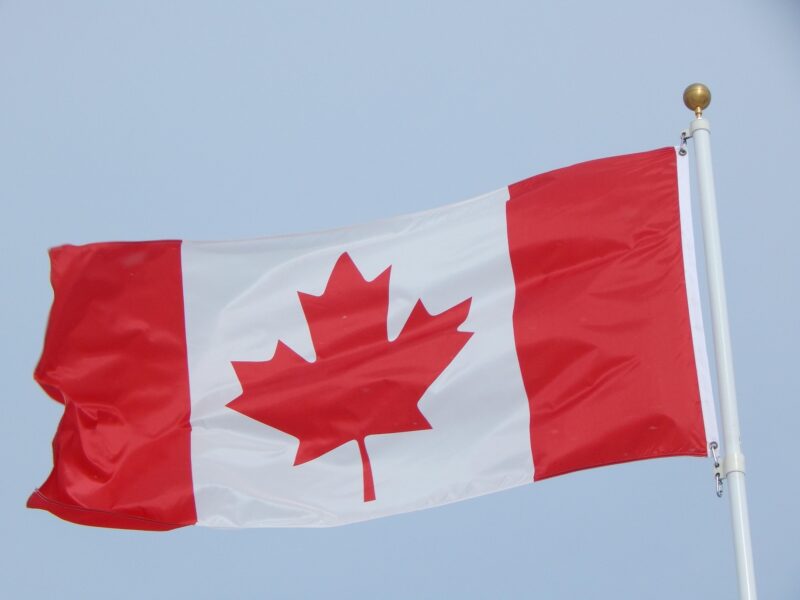Canada’s gambling market has always been shaped by provincial rules. Each region decides what is legal, what is taxable, and how it’s enforced. When you add cryptocurrency into the mix, the situation becomes even trickier. Players who win with Bitcoin, Ethereum, or stablecoins may think they are outside the tax net. They aren’t. The Canada Revenue Agency (CRA) treats crypto the same way it treats fiat when it comes to gambling gains and related income.
The big issue is that no single rule applies across the board. Provinces have their own approaches to regulation, and that affects how tax laws are enforced in practice. The CRA sets the national tax framework, but provincial interpretations and gaming authorities influence what players face on the ground. For crypto gamblers, especially those exploring BetFury’s btc slots, the differences in regulation and taxation can directly shape how winnings are reported and what players actually take home.
How the CRA Sees Crypto Gambling
The CRA does not create a separate category for crypto gambling winnings. Instead, it applies existing rules on taxable and non-taxable income. The general principle is simple: if gambling is a hobby, winnings are not taxed. If it looks like a business – meaning systematic play, organized staking, or professional-level betting – then profits are taxable as business income.
Cryptocurrency complicates this picture because every win is also a “disposition” under Canadian tax law. That means the moment you receive crypto from a gambling site, even if you don’t cash out to fiat, a taxable event may occur. If you later sell, swap, or spend those tokens, capital gains or losses also come into play.
One tax lawyer put it this way:
“People think crypto gives them a shield. It doesn’t. The CRA tracks wallets and exchanges. If you’re moving coins regularly from casinos to your bank account, they will ask questions.”
Provincial Differences
Even though taxes are federal, how gambling is defined and monitored varies by province. This shapes whether certain platforms are seen as legal, grey-area, or outright unregulated. Players should understand the local stance before assuming tax exemptions.
Ontario
Ontario has the strictest system, thanks to iGaming Ontario. Licensed operators must comply with clear reporting rules. Players using regulated sites are unlikely to face disputes over whether their winnings are taxable. The tricky part comes with offshore crypto platforms. Technically, Ontario residents are not supposed to use them. If they do, and the CRA reviews the income, the player may need to justify why the winnings should be tax-free.
Quebec
Quebec Revenue Agency often takes a harder line than the CRA. While hobby gambling is not taxed, professional play is scrutinized closely. In past audits, some poker players were assessed as if they were running a business. With crypto, the risk is similar. A Quebec resident who frequently withdraws large sums from platforms like BetFury could face questions about intent and consistency of play.
British Columbia
BCLC runs the provincial system and is mostly focused on licensed online and land-based play. While they don’t tax hobby winnings, their cooperation with federal bodies makes crypto flows more visible. If you win big with Bitcoin and convert through Canadian exchanges, the CRA gets the data.
Alberta
Alberta has fewer restrictions, and offshore crypto casinos operate widely. This creates the perception that taxes don’t apply. But legally, the CRA’s rules are still in force. If your gambling looks organized or systematic, it could be taxable. Casual players usually remain outside the tax net, but crypto volatility complicates reporting.
Other Provinces and Territories
The smaller provinces follow the federal stance but have less active oversight. Atlantic Canada tends to treat gambling as entertainment unless there’s clear evidence of professional play. In the Prairies, enforcement is rare but not absent. The territories face even less direct monitoring, but winnings are still subject to CRA’s framework if declared.
Tax Treatment by Province
| Province/Territory | Local Regulator | Crypto Casino Status | Tax Treatment of Winnings | Risk Level for Audits |
| Ontario | iGaming Ontario | Offshore use restricted | Hobby exempt, business taxable | High |
| Quebec | Loto-Québec & QRA | Offshore access common | Strict review of professional play | High |
| British Columbia | BCLC | Offshore tolerated, not licensed | Hobby exempt, business taxable | Medium |
| Alberta | AGLC | Offshore widely used | Same federal rules, less oversight | Medium |
| Atlantic Provinces | ALC | Offshore tolerated | Hobby exempt, rare enforcement | Low |
| Territories | None dedicated | Offshore common | CRA rules apply | Very Low |
The Crypto Angle
The most misunderstood element is that crypto itself is taxable. Even if gambling is not considered a business, the moment you dispose of coins, the CRA may treat the gain or loss as capital income.
For example:
- You win 1 ETH worth CAD 3,000 in January.
- You keep it in your wallet.
- In April, ETH is worth CAD 4,000, and you sell it.
The initial win may not be taxed if seen as a hobby, but the CAD 1,000 gain is taxable as a capital gain. This double-layer effect is why tax professionals advise players to keep detailed records of their crypto transactions.
A crypto accountant said:
“The tax risk is not just on the win. It’s on what happens after. If you hold coins for a year and they jump in value, the CRA expects you to report that.”
BetFury and Record-Keeping
Platforms like BetFury provide transparency features that can help players stay compliant. Transaction histories, withdrawal logs, and staking records can be exported and used as evidence if the CRA audits a player. For Canadians, this can be a safety net. Without proper records, the CRA may assume worst-case scenarios.
That said, not every crypto casino offers this. Players in Alberta or Quebec who gamble through unlicensed sites without record-keeping tools are at higher risk. When coins move from an offshore wallet to a Canadian bank, the CRA will want explanations.
Practical Advice for Players
If you gamble casually, keep receipts, screenshots, and wallet records. If you gamble often, treat it like a business: track profits, losses, and expenses. And if you use crypto, remember you face not only gambling rules but also the capital gains tax regime.
Some basic steps help:
- Store every transaction ID from casino to wallet.
- Use Canadian crypto exchanges that provide tax forms.
- Separate gambling funds from personal holdings to avoid confusion.
- If you stake tokens (like BFG on BetFury), track staking rewards as income.
Regional Attitudes and Social Context
While laws are consistent on paper, attitudes differ. In Alberta and Saskatchewan, gambling is often seen as a personal liberty, and audits are rare. In Quebec and Ontario, regulators are more aggressive, and the stigma of “professional gambling” carries heavier tax risk.
Interestingly, younger players in provinces like British Columbia often see crypto gambling as no different from trading tokens. They treat winnings and token gains the same. This mindset collides with the CRA’s dual approach.
Final Thoughts
Crypto has not changed the core rule: casual wins are not taxed, professional gains are. What it has changed is the visibility and volatility of money flows. With provinces setting different standards for legal platforms, Canadians face a patchwork reality. Some play safely under provincial licenses. Others take risks with offshore crypto casinos.
Either way, the CRA is watching the blockchain. Players who want to keep their crypto gains safe – whether from btc slots or other casino games – need to think not just about how much they win, but how they report it.








